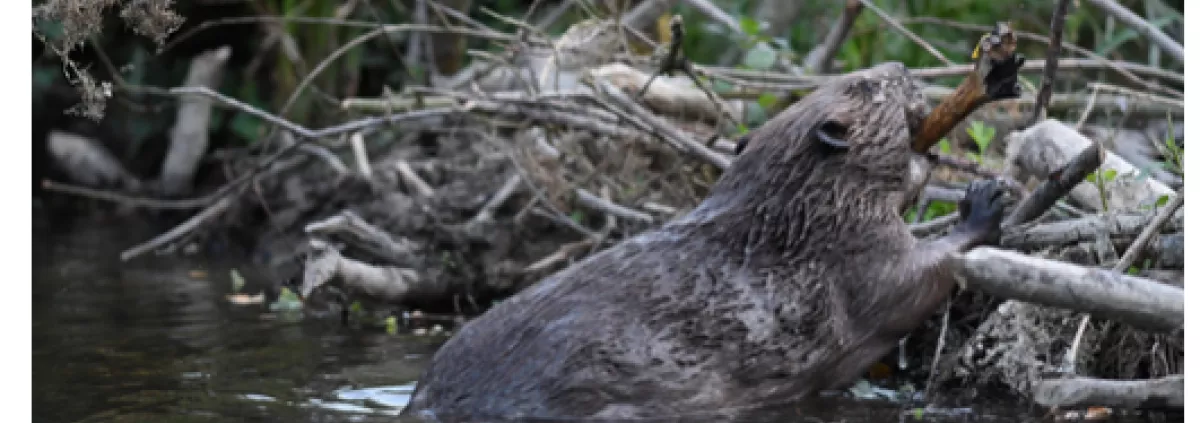A native mammal and once widespread, beavers are a keystone species and ecosystem engineers, they have the capacity to restore ecosystem functions, enhance habitat heterogeneity, raise biodiversity and contribute vital ecosystem services. For a number of years, The Wildlife Trusts have been working on projects to reintroduce the Eurasian beaver (Castor fiber) to the U.K. since 2001, after playing a crucial role in our wetland landscapes from prehistoric times until it was hunted to extinction in the 16th century. The loss of this charismatic species also led to the loss of the mosaic of lakes, meres, mires, tarns, and boggy places that it so brilliantly built.
Following discovery of a wild beaver population in Devon, in 2014, by DEFRA, The Wildlife Trusts developed developing a proposal in response to plans to remove them: England's first ever wild beaver trial. Some 13 projects later and July 2022 saw positive news that beavers in England will be given legal protection, which may pave the way for the animals to be released in the wild under licence.
Research into their ability to contribute to flood risk management and wider envrionmental and ecological benefits are ongoing. For example, the Devon project's work with the University of Exeter has found that the presence of beavers at this site has had a profound impact on the ability of the land to hold water, has reduced the sediment load in the surface water and increases in biodiversity has been recorded.
Using Willington Wetlands in Derbyshire as one example, Kate Lemon, Regional Manager (Trent and Erewash) for Derbyshire Wildlife Trust discusses the project in this 2021 Webinar in conjunction with CIWEM.
Further to this, CIWEM will be hosting a catch up Webinar on 23rd November 2022... Sign up here!
